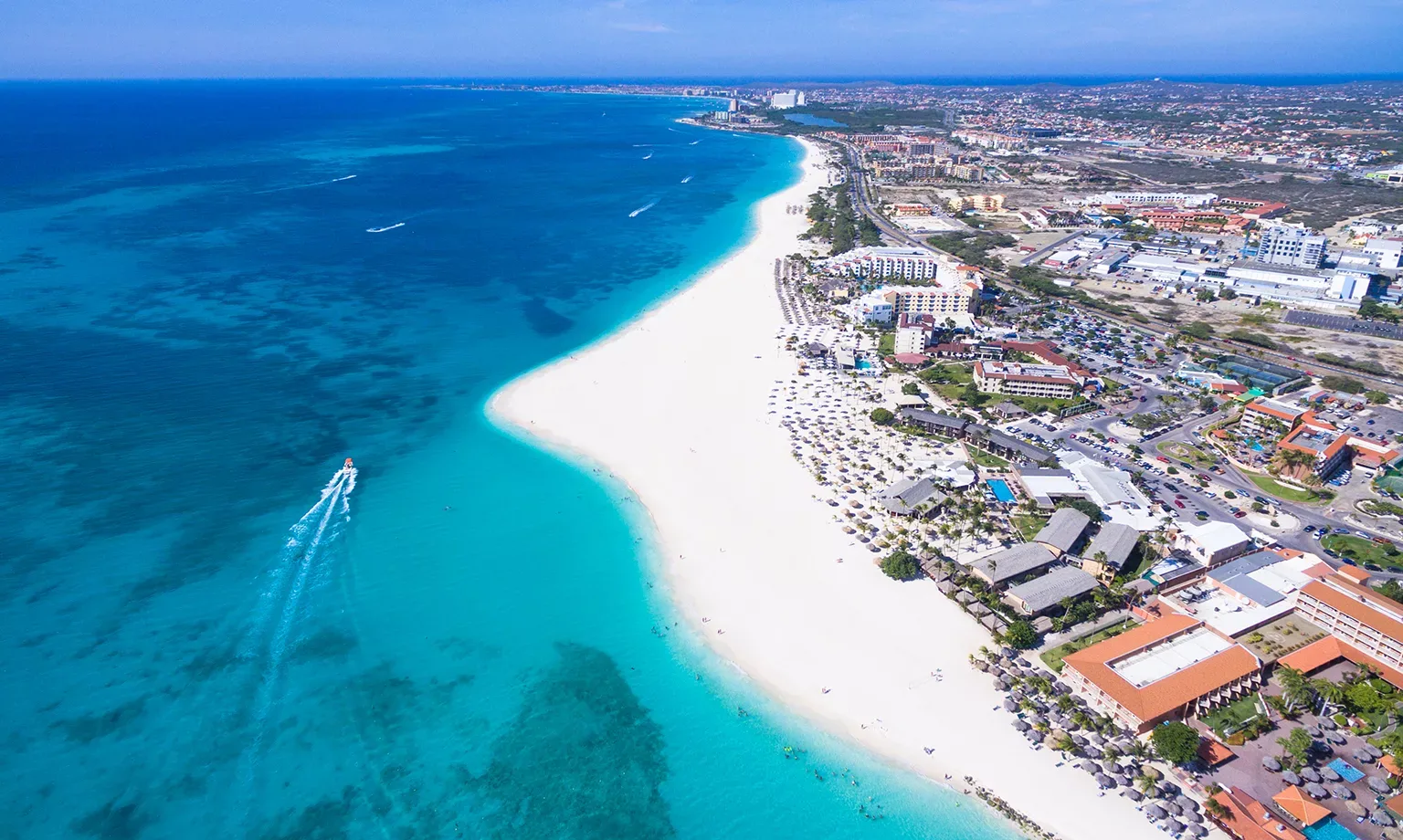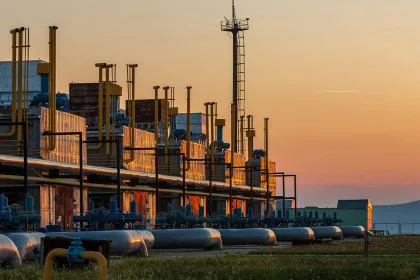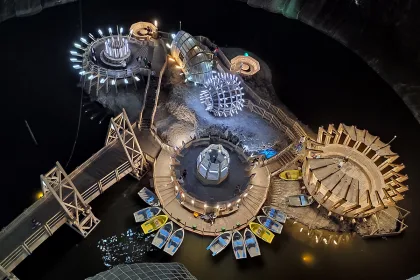As a top investment destination, Aruba is all sunny skies, cool trade winds, and anything but business as usual.
INTRODUCTION
Aruba, a constituent of the Kingdom of the Netherlands, has a favourable and appealing investment climate.
Strategically situated in the south of the Caribbean Sea, Aruba offers proximal access to Latin and North America, along with a strong passage to Europe. The 180 square kilometre (sqkm) island boasts state-of-the-art seaport and airport facilities that further enable the efficient transportation of goods and people to these markets.
Aruba also benefits from a secure, democratic judicial system, where setting up a company and doing business in the country is supported by a clear and enforceable legal framework backed by the Supreme Court in The Hague, providing confidence to even the most demanding entrepreneurs.
As a self-governing part of the Dutch Kingdom, there is equally strong economic and political stability, as well as bountiful natural resources and reliable connectivity.
Through this conducive business environment, Aruba is committed to driving growth in six promising sectors, namely sustainable agriculture, circular economy, creative industries, knowledge economy, logistics, and medical tourism, as well as bolstering economic development in Oranjestad and San Nicolas. Industrial development has been part of the island’s history for decades, and Aruba is now seeing economic growth in this diverse range of sectors.
With a passion for sustainable innovation and lifelong learning, Aruba’s talented workforce is hard-working, well-educated, and multilingual. While Dutch is the island’s native tongue, most Arubans speak a minimum of four languages, including English and Spanish, increasing accessibility to markets around the world.
From primary to higher education, the Aruba workforce is also bolstered by highly specialised and individualised learning with a strong international focus.
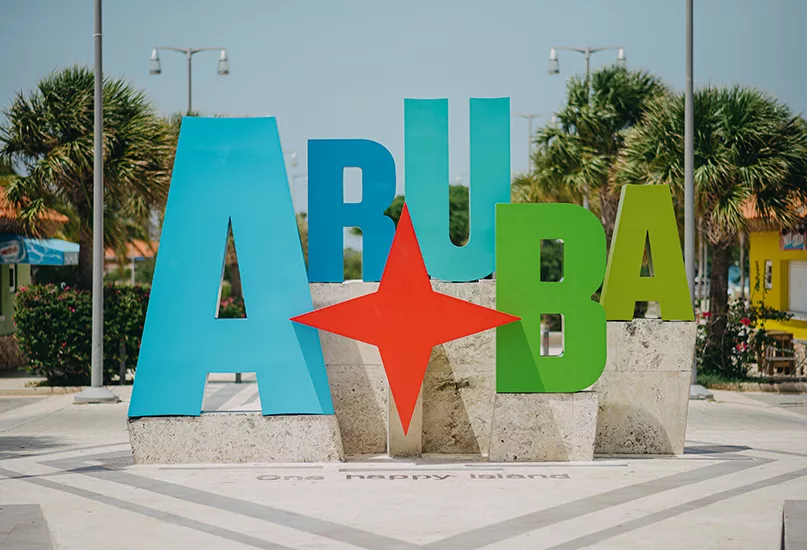
INTERVIEW: ARUBA INVESTMENT AGENCY
The Aruba Investment Agency (ARINA), an operational unit of the Department of Economic Affairs, Commerce, and Industry of Aruba (DEACI), was created to attract new investments in the island’s six promising sectors. Geoffrey Wever, Minister of Economic Affairs, Communication, and Sustainable Development at the Government of Aruba, discusses promoting and facilitating investment.
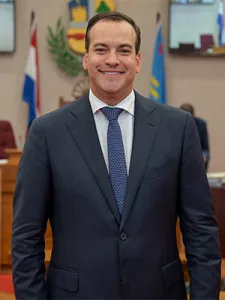
Firstly, could you talk us through the origins and vision of ARINA?
Geoffrey Wever, Minister of Economic Affairs, Communication, and Sustainable Development (GW): Aruba is most prominently known as a vibrant tourism destination, which is its single most important economic pillar, accounting for over 80 percent of its GDP. While the tourism industry has engendered significant wealth for the island, the Government of Aruba acknowledges that tourism alone is not conducive to a sustainable and resilient future.
With this in mind, the Government of Aruba painted the vision of transforming the island into a sustainable, inclusive, and resilient economy that contributes to a better quality of life for all its citizens and saw economic diversification by means of qualitative foreign direct investment (FDI) as a crucial driver for this transition.
As such, ARINA was born as an operational unit of DEACI under the Ministry of Economic Affairs, Communication, and Sustainable Development, responsible for promoting Aruba’s investment opportunities and attracting and facilitating foreign investors looking to develop real economic activity within Aruba’s promising sectors, the city of Oranjestad, and downtown San Nicolas.
The promising sectors refer to activities related to sustainable agriculture, circular economy, creative industries, knowledge economy, logistics, and medical tourism. For more information, please refer to investinaruba.com or reach out to ARINA.
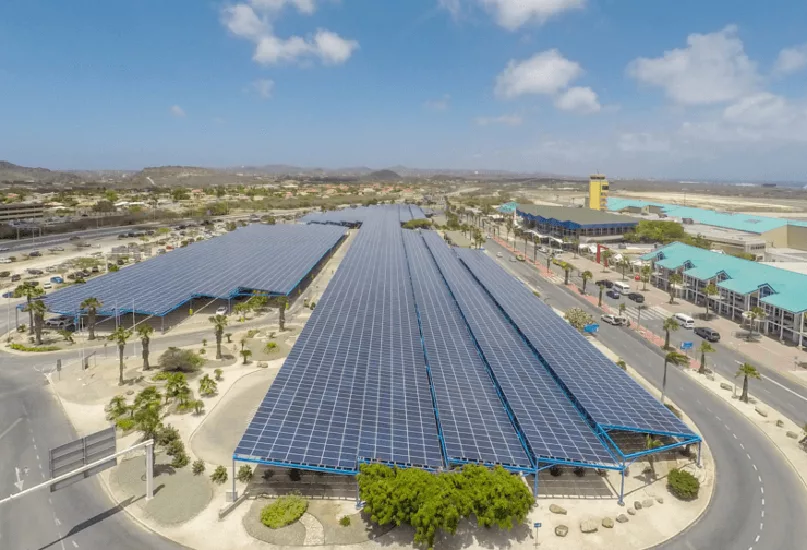
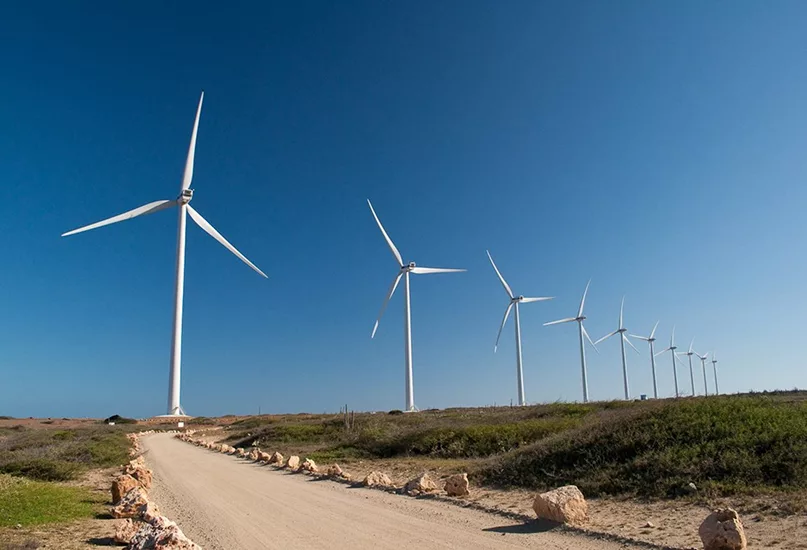
What is your current take on the investment climate in Aruba? Is it a particularly conducive or challenging environment to invest and conduct business in?
GW: In the vast tapestry of global economies, investment climates are diverse ecosystems, each with their own set of unique characteristics, challenges, and opportunities. Aruba is no different; it comes with its own flare, and while challenges do exist, the region has many favourable factors that make it conducive to investment and business. Political stability, a solid legal system based largely on Dutch law, an educated workforce, well-developed infrastructure with good air and maritime connectivity, and a central location proximal to North and Latin American markets all contribute to its strong investment climate, especially within the Caribbean.
Since 2021, the Amsterdam Bureau for Economics has published the Caribbean Investment Climate Index (CICI). This index evaluates the investment attractiveness of countries across the Caribbean region. Aruba has secured first place consecutively for three years as the most attractive investment climate in the archipelago since the start of CICI.
Doing business in the Caribbean comes with its own set of challenges. Aruba has a small market size and is more susceptible to external factors, such as global economic shifts and foreign supply chains. That being said, the Government of Aruba is committed to stability and economic resilience, as is evident in its proactive approach to challenges. It is leveraging new technologies to minimise its import reliance by harnessing the power of renewables, promoting local agriculture, and valorising waste streams among other strategies. Furthermore, with a focus on service-related industries and taking advantage of global trends, such as increasing digitalisation and the future of work, entrepreneurs in Aruba are not limited to the domestic market but instead can perform business without borders, with services and knowledge as export products.
How does ARINA promote and facilitate investment in Aruba and make it easy for investors to establish their companies in the country?
GW: Like other investment promotion agencies (IPAs), ARINA makes use of various channels to promote Aruba as an attractive investment destination. Social media engagement, Google adverts, the organisation of conferences and events, and website content, among others, allow us to extend our reach within our target markets. These tactics generate leads or interested prospects, which we engage for facilitation. ARINA supports investors in establishing their projects in Aruba by several means. We help by:
- Providing information on Aruba’s requirements, incentives, policies, and procedures.
- Leveraging our broad network of business partners and government institutions for matchmaking and generating broad support for projects.
- Assisting in organising fact-finding and site-selection trips.
- Advocating investor needs for an attractive investment climate.
- Treating projects and shared information with the utmost confidentiality.
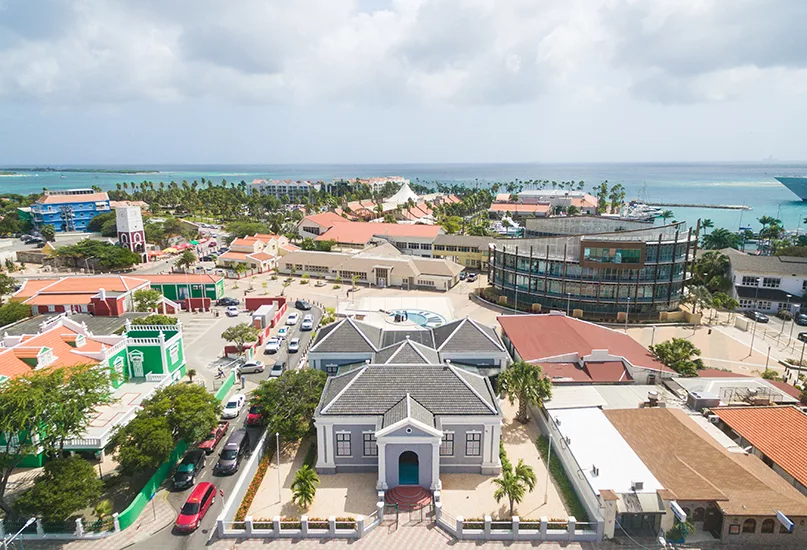
How do you promote and connect Aruba to global business opportunities to attract investors, capital, knowledge, and innovative technology in new economic sectors to contribute to the sustainable development of the island?
GW: ARINA connects Aruba to global business opportunities by various means, most notably through the organisation of the Aruba Investment Summit (AIS). AIS is a conference that serves as a gathering of foreign investors, representatives from the network of economic diplomacy and trade facilitation, and the Government of Aruba. This was held in 2021 in Aruba and will be hosted in March 2024 in The Hague, the Netherlands, and will be organised by the Ministry of Economic Affairs, the Dutch Representation in Aruba (VNO), and the Aruban Chamber of Commerce.
AIS2024 will be a hybrid conference under the theme ‘Invest with Purpose’. AIS2024 aims to attract foreign investors to consider investment opportunities in Aruba beyond the tourism sector. Aruba’s target market for sustainable investment opportunities includes international (and local) impact investors and businesses who are interested in supporting and participating in Aruba’s sustainability efforts.
The summit will showcase projects and opportunities that make it compelling for foreign businesses to invest in Aruba. These projects and opportunities will not only be financially appealing, but also demonstrate the potential for growth, sustainability, and innovation. The summit will highlight Aruba’s promising sectors and the opportunities that exist within this space, and give special focus to the urban and business development of Oranjestad and San Nicolas.
I will be presenting the latter, showcasing the ongoing projects and vision for these areas, as well as showcasing my vision for gastronomy and creative industries to position Aruba as a hub for culinary excellence, cultural expression, and artistic innovation.
How do you see investment in Aruba developing over the next five years?
GW: ARINA aspires to increase the economic contribution of the six promising sectors over the next five years. It is anticipated that in the short term, based on Aruba’s developments and global technological trends, it will attract foreign investors and companies in the industries of renewable energy, green technology, sustainable agriculture, and digital solutions. We also see opportunities for companies looking to develop, demonstrate proof of concept, and bring to market innovative, sustainable technology, whereby Aruba can serve critical sandbox and showroom functions.
There are a lot of domestic developments taking place, which will impact the influx of investments to Aruba. The island’s economic policies and initiatives are easing the means and cost of doing business. In October 2022, I reduced the hurdles and requirements to setting up a company and thereby minimised the time needed for acquiring a business license under the Business Establishment Ordinance.
The Profit Tax Ordinance was also updated, therefore reducing the corporate income tax rate from 25 percent to 22 percent. Additionally, an incentives proposal is in the works to accelerate the acquisition of impact investors and support the transition to a more sustainable and diversified economy. Coupled with other factors, such as improved partnerships among stakeholders, participation in beneficial trade agreements, a national action plan, and the development of Oranjestad and San Nicolas, those investors with an eye for opportunity will take notice.
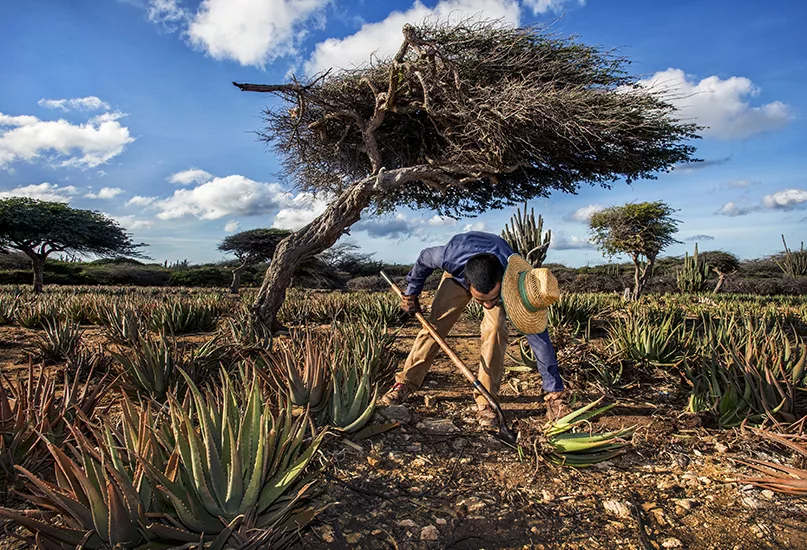
Finally, what are ARINA’s key priorities in order to continue to promote and facilitate investment in the island?
GW: ARINA has several key priorities aimed at achieving the overarching vision, one being the successful organisation of AIS2024. This will serve as an important stage to put Aruba and its opportunities on the map for foreign investors to engage.
Another key priority is the successful recalibration of ARINA’s investment strategy and promotional plan. Rather than chasing FDI simply for the sake of diversification, ARINA has set its sights on qualitative FDI that not only contributes to diversification but also favours the strategic interests of Aruba for a sustainable and resilient economy. The successful implementation of these plans will be essential to ensuring that Aruba’s factors of production are utilised efficiently to generate multiple values.
Policy advocacy for attractive investments and initiatives that strengthen Aruba’s value proposition are also key priorities. While all countries wish to attract high-quality FDI, Aruba is cognisant of the fact that the necessary investment climate conditions must be in place in order to do so. Especially with intensifying global competition for FDI, ARINA intends to carefully balance the needs of Aruba and investors. That is to say, it is imperative that we not only think of what investors can do for Aruba, but also focus on what Aruba can do for investors.



